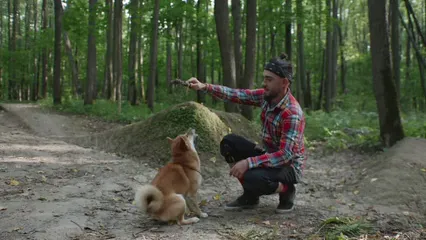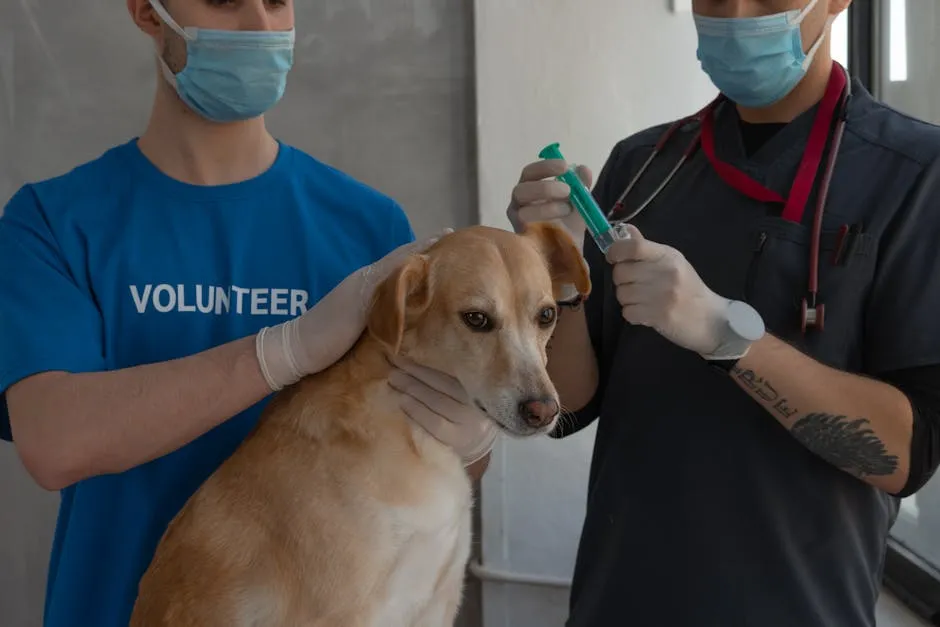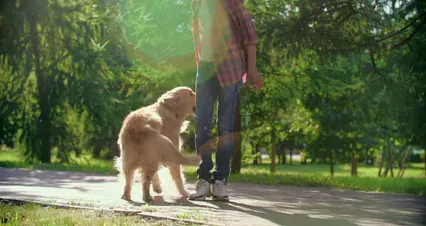
Why Do Dogs Lick Your Face? Understanding Canine Behavior and Communication
Introduction
Have you ever wondered why your dog loves to lick your face? This adorable behavior often leaves us curious and amused. Understanding why dogs lick is essential for dog owners. It helps us appreciate our furry friends more and strengthens our bond with them. Let’s uncover the reasons behind this endearing habit.
But while we’re at it, let’s talk about keeping that furry friend happy and healthy! If you want to prevent any licking-related hygiene issues, consider getting a Dog Licking Deterrent Spray. It’s like saying, “Hey buddy, let’s keep the slobber to a minimum!”
Summary and Overview
In this article, we will discuss several reasons why dogs lick your face. We’ll explore how licking expresses affection, serves as a form of communication, and reflects instinctual behaviors. Additionally, you’ll learn about the role of taste in this behavior and when licking might become excessive. Recognizing the signs of problematic licking will help you manage it effectively, ensuring a happy relationship with your canine companion.
And speaking of managing relationships, if you’re looking for a fun way to engage your dog mentally, check out this Interactive Dog Puzzle Toy. It’s the perfect way to keep their mind sharp and their licking to a minimum!

Understanding Dog Licking Behavior
What Is Dog Licking?
Licking is a natural and instinctive behavior in dogs. It starts as a way for puppies to communicate with their mothers. They lick to seek food and comfort. This behavior continues into adulthood, where it serves various purposes.
Psychologically, licking releases endorphins, making dogs feel good. It can also provide comfort during stressful times. Physically, it helps dogs groom themselves and their companions. Licking can be soothing and enjoyable, reinforcing their need for affection and connection with their owners.
Why Do Dogs Lick Your Face?
Have you ever wondered why your dog gets so excited to lick your face? It’s not just because they love you (although that’s a big part!). Let’s break down some key reasons behind this behavior.
Affection is one of the most common reasons. Dogs often lick to show love and strengthen their bond with you. When they lick your face, it’s like a canine version of a kiss. This behavior stems from their puppy days when they licked their mothers for comfort and food.
But there’s more to it. Instinctual behavior also plays a role. In the wild, puppies lick their mother’s face to encourage her to regurgitate food. This instinct has carried over into domesticated dogs. When they lick you, they may be signaling friendliness and a non-threatening demeanor.
Let’s not forget about taste and smell! Your face is a treasure trove of scents and flavors. Dogs have an amazing sense of smell, and they often lick to explore. They might be attracted to food particles, sweat, or the unique scent of your skin. So, when your pup gives you those slobbery kisses, they’re also on a flavor adventure!
These reasons help explain why dogs lick your face, mixing affection, instinct, and curiosity into one adorable behavior.

The Role of Puppyhood in Licking
Puppies learn the art of licking early on. They lick their mothers to ask for food and comfort. This behavior often carries into adulthood, serving as a social tool. You might notice that dogs who lick a lot tend to be more social and affectionate.
The concept of neoteny is relevant here. This term describes how some juvenile traits persist into adulthood. Many domesticated dogs display this trait, which includes playful and affectionate behaviors like licking. So, when your dog licks your face, they’re not just showing love; they’re also expressing their inner puppy!

Attention-Seeking Behavior
Did you know that dogs often lick to gain your attention? Whether it’s positive or negative attention, licking can be their way of saying, “Hey, look at me!” If you laugh or pet them in response, they’ll likely repeat this behavior.
It’s essential to respond appropriately to this attention-seeking behavior. If you want to discourage it, try redirecting their focus to a toy or engaging them in play. This way, your dog learns that there are better ways to get your attention than with slobbery kisses!
Communication and Social Signals
Licking is a key way dogs communicate. When your dog licks your face, they may be expressing affection or signaling a need. This behavior often indicates their emotions, such as excitement or happiness. It can also reveal their desire for attention or reassurance.
In social contexts, licking plays a significant role among dogs. For instance, dogs often lick each other to show submission or friendliness. This act fosters bonds and reinforces social ties. When your dog licks you, they could be treating you as a part of their pack.
Understanding this communication helps strengthen your bond. A dog’s lick can convey a wealth of feelings, from love to a desire for comfort. By recognizing these signals, you can respond appropriately to their needs and emotions.

When Does Licking Become a Problem?
Identifying Excessive Licking
Excessive licking can indicate underlying issues. It’s essential to recognize when licking goes beyond normal behavior. If your dog licks constantly, it may signal anxiety or stress. This behavior can also arise from boredom or frustration.
Look for signs that suggest licking has become problematic. If your dog licks to the point of irritation or injury, it’s time to take action. Other indicators include licking furniture or surfaces frequently. If you notice changes in their licking habits, consult a veterinarian for guidance.

And while you’re taking care of those potential issues, consider investing in a Pet Grooming Glove. It’s a great way to keep their coat shiny and healthy, which might just reduce their need to lick as they groom themselves!
Health Concerns Related to Licking
Health risks can arise from dog licking. While occasional licks are usually harmless, excessive licking can pose dangers. Dogs’ mouths contain bacteria that can lead to infections. Zoonotic infections, which can transfer from dogs to humans, are a concern.
Vulnerable groups, such as young children, the elderly, or immunocompromised individuals, should be cautious. If your dog licks your face, ensure hygiene practices are followed. Regularly wash your face after licking to minimize any potential risks. Understanding these health concerns helps maintain safety for both you and your furry friend.

How to Manage Your Dog’s Licking Behavior
Strategies to Discourage Unwanted Licking
If your dog’s licking has become too much, don’t worry! There are effective ways to manage this behavior.
First, consider redirecting their behavior. When you notice your dog beginning to lick, distract them with a toy. A chew toy or a ball can shift their focus away from licking. Try using some Chew Toys for Dogs to keep them engaged!
Another helpful tactic is providing distractions. Engage your dog with interactive games or puzzles. These activities not only keep them busy but also stimulate their minds. This can reduce the urge to lick out of boredom.
Training is also crucial. Use commands to help reduce licking. Teach your dog commands like “leave it” or “no lick”. Whenever they obey, reward them with praise or treats. This positive reinforcement reinforces desired behavior and helps curb unwanted licking.
Finally, ensure your dog is getting enough exercise. A tired dog is less likely to lick excessively. Regular walks, playtime, and mental challenges can keep them happy and calm. Consider a Dog Bed for Comfort to help them rest well after all that play!

Encouraging Positive Interactions
Creating a positive environment can help reduce your dog’s need to lick. Spend quality time with your dog through play and cuddling. This builds trust and strengthens your bond.
Consider using alternative forms of affection. Instead of allowing face licking, give your dog belly rubs or gentle scratches behind the ears. These interactions can satisfy their need for closeness without the slobbery kisses.
Additionally, incorporate training sessions into your routine. Teaching tricks or commands can provide mental stimulation and reinforce your bond. You might want to check out a Dog Training Clicker to make training even more effective!
By fostering positive interactions, you can create a loving atmosphere that minimizes excessive licking. This way, both you and your dog can enjoy your time together!

Conclusion
In this article, we explored several reasons why dogs lick our faces. We learned that licking often signifies affection and helps strengthen the bond between dogs and their owners. It’s also an instinctual behavior, rooted in their puppyhood experiences, where they sought comfort and food from their mothers. Understanding this behavior is crucial for fostering a better relationship with your furry friend.
If your dog’s licking becomes excessive or bothersome, it’s important to observe their behavior closely. Don’t hesitate to reach out to a professional dog trainer or veterinarian for guidance. Being proactive ensures a happy and healthy interaction with your pet. And hey, if you want to treat your pup while training, consider some Dog Training Treats to keep them motivated!

FAQs
Why do dogs lick me when I’m upset?
Dogs are naturally empathetic creatures. When they see you upset, they may instinctively lick you to offer comfort. This behavior is their way of trying to soothe you. They often sense emotions and respond with affection, making them great companions during tough times.
Is it safe for my dog to lick my face?
Generally, it’s low risk. However, be mindful that a dog’s mouth carries bacteria. While most healthy individuals don’t get sick from dog saliva, it’s wise to wash your face afterward. If you’re immunocompromised or have open wounds, it’s best to avoid face licking.
How can I stop my dog from licking my face excessively?
Managing this behavior starts with distraction. When your dog begins to lick, redirect their attention with a toy or treat. Training commands like “no lick” can also help. Reward them when they obey, reinforcing positive behavior. Consistent practice will lead to improvement.
What does it mean when my dog licks my hands or feet?
Licking your hands or feet can indicate curiosity or affection. Dogs are attracted to the scents on your skin, which might include food residues or sweat. This behavior is also a way for them to bond with you, as they explore their environment.
Why do puppies lick faces more than adult dogs?
Puppies tend to lick more as they learn social behaviors. They lick their mothers to solicit food and affection. This behavior often continues into adulthood, as it helps them bond with humans. Puppies are naturally more playful and affectionate, leading to more licking.
Before you wrap up, consider adding some extra safety measures for your furry friend. A Pet First Aid Kit is always a smart choice for dog owners!
Please let us know what you think about our content by leaving a comment down below!
Thank you for reading till here 🙂
All images from Pexels




